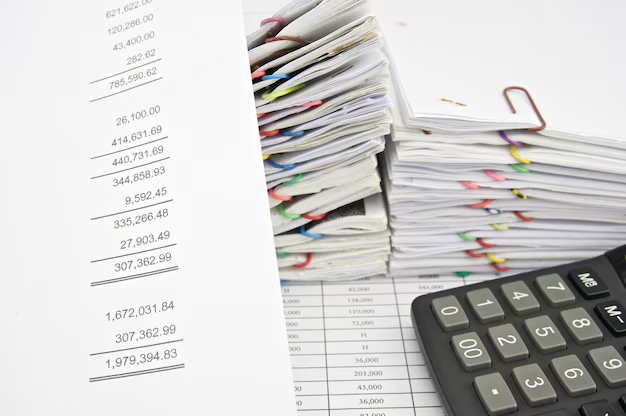Don't Overlook Your Tax Documents! Essential Guidance on How Long to Keep Tax Papers
When it comes to managing finances, keeping track of tax documents often falls to the bottom of the to-do list. Yet, understanding how long you should hold onto your tax papers is crucial for financial health. Whether it’s for audits, reference, or peace of mind, knowing the optimal retention period can save you from future headaches. Let's unravel this topic from various angles, providing you with clear insights and practical guidance.
The Importance of Keeping Tax Documents
Imagine receiving a notice from the IRS requesting past tax documents. Panic sets in, but if you're organized, the situation can be less daunting. Keeping tax documents ensures you have records on hand for audits, disputes, or future planning. Here’s why it matters:
- Audit Preparedness: The IRS can audit tax returns filed in the last three years, although the period can extend up to six years in certain situations.
- Error Correction: Mistakes happen, and having your documents can help rectify errors swiftly.
- Proof of Income: Documents serve as solid proof of income for loans or applications.
- Historical Reference: Looking back at your financial history helps in making informed financial decisions.
How Long Should You Keep Different Tax Documents?
Not all tax documents need to be kept for the same amount of time. The IRS has specific guidelines, but personal and business circumstances can alter the best retention period.
Keep for Three Years
- Individual Tax Returns: Generally, the IRS recommends holding onto your filed returns and all supporting documents for a minimum of three years from the date you filed the original return.
- W-2 and 1099 Forms: These forms report income; hence, they should be retained for at least three years.
- Receipts and Canceled Checks: If they’ve contributed to your tax deductions, it's wise to keep them for three years.
Hold for Six Years
- Omission of More than 25% of Gross Income: If you failed to report income exceeding 25% of your gross income on your return, the IRS can review returns for up to six years.
Keep Indefinitely
- Unfiled Returns: If you haven’t filed a return, the IRS has no time limit for initiating an audit.
- Fraudulent Returns: If your return is proven fraudulent, there's no statute of limitations.
Business Tax Documents
For businesses, holding onto records for at least six to seven years is recommended due to factors like depreciation and potential audits.
Summary of Key Retention Periods 📜
- 3 Years: Basic records like income proof, deductions, and annual tax returns.
- 6 Years: In cases of omitted income or error suspicion.
- Indefinitely: Unfiled or fraudulent returns.
Best Practices for Managing Your Tax Documents
Having a system isn't just efficient; it's empowering. Here’s how you can manage tax papers effectively:
Use a Digital Storage System
- Ensure Accessibility: Utilize cloud storage for easy access and backup.
- Security First: Encrypt files and use secure platforms to protect sensitive information.
- Regular Updates: Keep digital documents updated and organized by year for quick retrieval.
Establish a Filing System
- Categorize By Type: Segregate documents into categories like income records, deduction proofs, and investment papers.
- Date-Based Sorting: Organize by year to simplify audits and reviews.
Disposing of Old Documents
When the time comes to discard outdated documents, shredding is crucial to protect sensitive information from identity theft.
Special Circumstances: When to Deviate from Standard Guidelines
While the general rules are a good starting point, sometimes life necessitates deviation. Consider these scenarios:
Major Life Events
- Home Purchase or Sale: Retain records until the sale is final and taxes settled.
- Divorce or Marriage: Hold onto documents longer as they might be needed for dispute resolution.
Business Considerations
- Depreciation and Asset Records: Maintain records throughout the asset’s life and for an additional three years after disposal.
- Employee Records: Retain payroll and employment tax records for at least four years.
How to Handle State Tax Documents
State tax agencies may require different retention timelines, typically extending beyond the IRS’s three-year guideline. To navigate these variations:
- Check State Guidelines: Confirm specific state requirements for document retention.
- Align Federal and State Records: Consistency across federal and state records simplifies managing and storing documents.
Empowering Yourself with Knowledge
Understanding tax document retention isn't just about compliance; it's about financial empowerment. By staying informed and organized:
- You avoid unnecessary stress during audits or financial reviews.
- You safeguard yourself against potential legal or financial ramifications.
- You set a reliable financial foundation for future endeavors, such as buying a property or starting a business.
Final Thoughts and Key Takeaways
Maintaining your tax documents effectively is a balancing act of timing, organization, and security. Here are some key points to remember:
- 🗓️ Duration Matters: Know the IRS guidelines and adjust based on your circumstances.
- 📤 Efficient Storage: Use digital means for accessibility and security.
- 🗑️ Safe Disposal: Shred documents that are no longer needed to protect your identity.
Arming yourself with this knowledge ensures smooth financial management, enabling you to focus more on current tasks and less on past records. Remember, well-organized tax documents not only fulfill legal obligations but also empower you in making informed financial decisions. Embrace these practices, and confidently welcome any fiscal challenges that come your way!

Related Topics
- Am I Tax Exempt
- Are 401k Contributions Tax Deductible
- Are 529 Plan Contributions Tax Deductible
- Are Attorney Fees Tax Deductible
- Are Campaign Contributions Tax Deductible
- Are Charitable Donations Tax Deductible
- Are Church Donations Tax Deductible
- Are Churches Tax Exempt
- Are Closing Costs Tax Deductible
- Are Contributions To 529 Plans Tax Deductible
